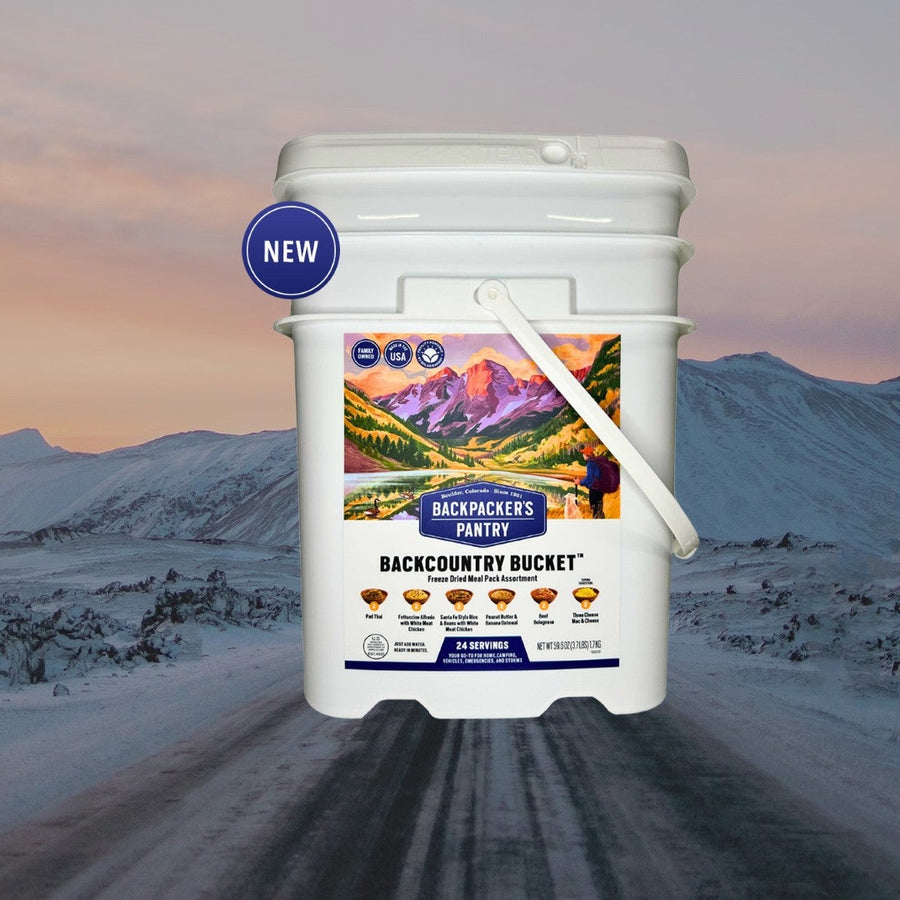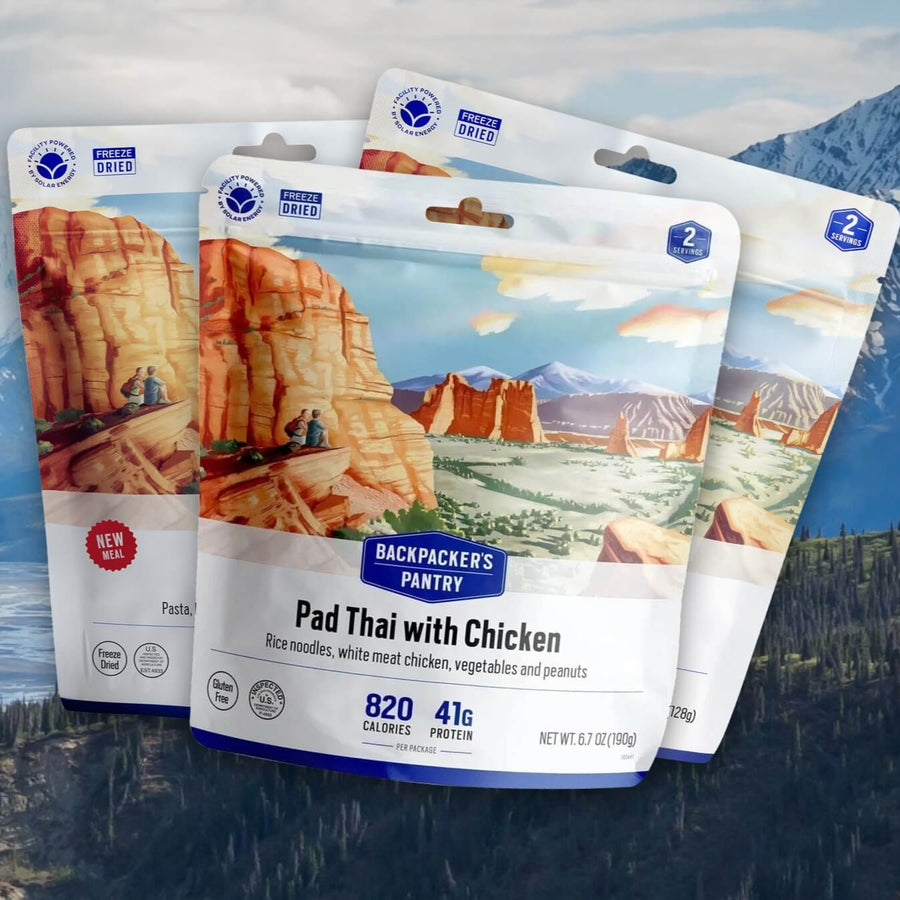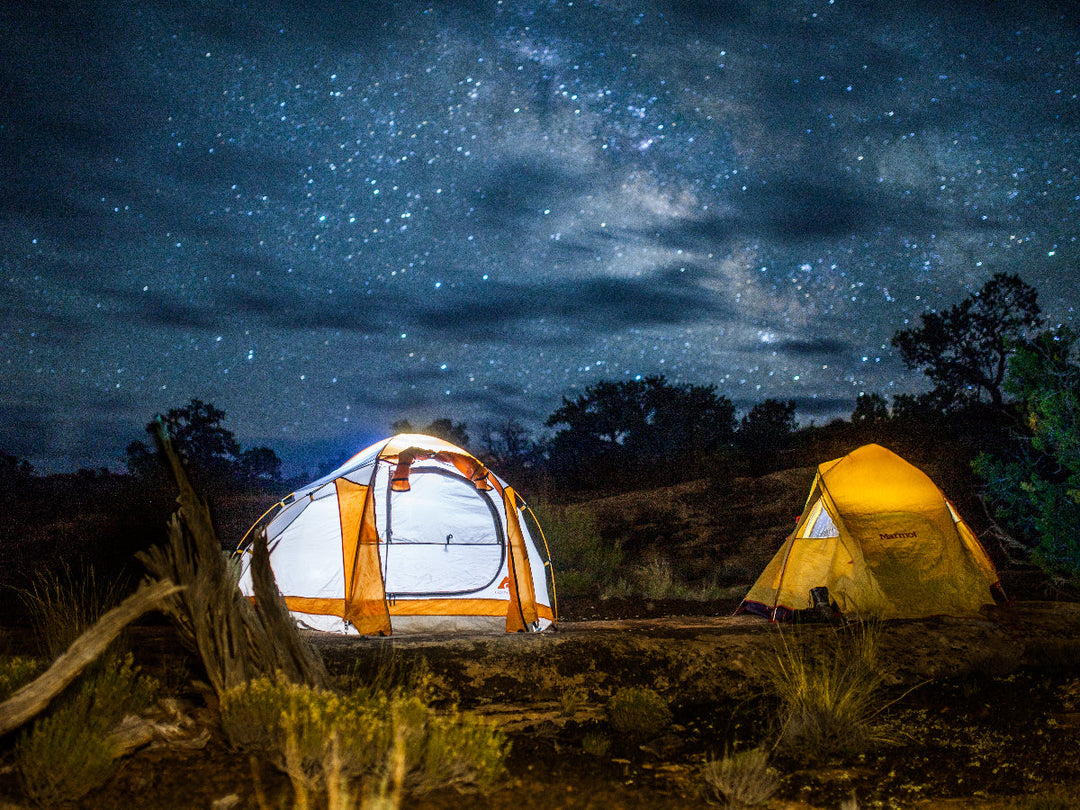The 5 Most Common Hiking Injuries & How to Avoid Them
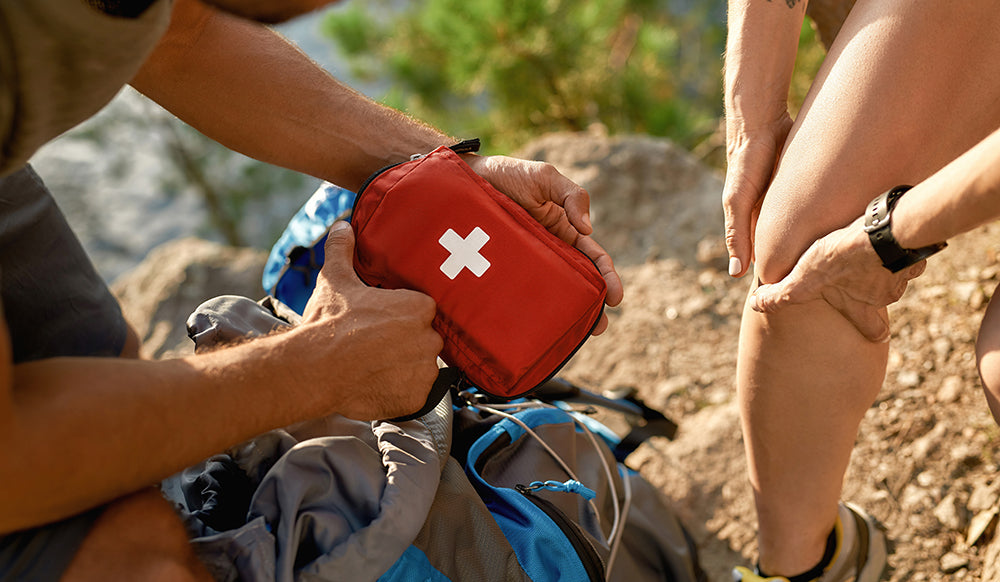
Hiking is a great way to get exercise and enjoy nature’s beauty. Unfortunately, it can also result in injuries if you don’t take steps to keep yourself safe on the trail. Here are some of the most common hiking injuries, along with some tips for treating and preventing them in the first place.
1. Falls & Slips - Sprained Ankles
Falls and slips represent the most common cause of injury for hikers, accounting for nearly half of all hiking-related accidents. The uneven terrain, slippery surfaces, and physical difficulty of hiking can be treacherous! Falls can be minor, with small scrapes and bruises, but they can also be more consequential, leading to more severe injuries, like broken bones or trauma.
Ankles are the most frequently injured body part, making up 42% of all hiking injuries. Nearly every hiker has rolled an ankle at some point. Uneven hiking trails are often riddled with rocks, slippery surfaces, and hidden obstacles, which means sprained ankles can be a frequent occurrence. While you may be able to walk off a minor sprain, severe sprains could leave you needing to call for help.
How to avoid spained ankles while hiking:
Avoid these painful injuries by wearing quality boots with ankle protection. You should also hike at a steady, safe pace while maintaining good balance and footing every step of the way. Consider adding trekking poles to your gear closet to help with footing and confidence.
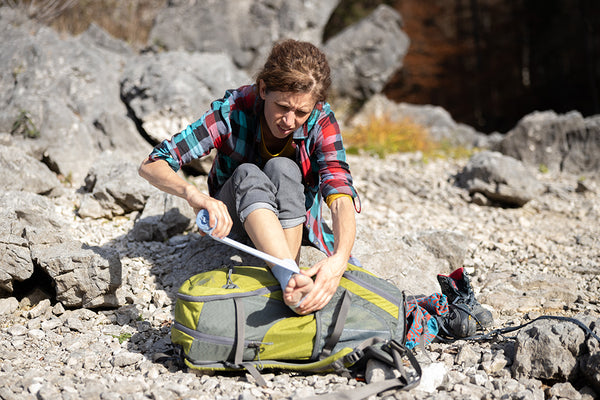
2. Twists & Tweaks - Hiking Knee Injuries
Shifting terrain and steep slopes can lead to both minor and severe knee injuries. You can reduce your risk of injury by taking things slow and staying alert for potential hazards. There are also several helpful steps you can take to protect your knees during a hike. For example, trekking poles allow you to maintain proper balance and better stability. These handy tools help you manage the weight from your body and pack, so you can avoid or minimize knee pain while hiking.
3. Exhaustion, Dehydration, and Heat Illness
It may sound like a minor inconvenience, but exhaustion, compounded by dehydration and heat illness, can be a serious issue on the trail. Commonly caused by inadequate nutrition, dehydration, and high temperatures, extreme fatigue not only affects your decision-making, but also compromises your ability to navigate safely. Your body torches calories on the trail: around 400-550 per hour while hiking. This can lead to a dangerous cycle where dehydration exacerbates fatigue, further impairing balance, vision, and decision-making skills. It's crucial to replenish with calorie-dense foods and adequate fluids to avoid the detrimental effects of exhaustion.
Dehydration, a common culprit behind exhaustion, occurs when your body loses more fluids than it takes in. Symptoms include thirst, dark-colored urine, and dizziness. Preventing dehydration is key to maintaining your energy levels and ensuring safety. Carrying and consuming sufficient water and electrolyte-replenishing beverages can help maintain hydration levels, especially during warm weather hikes where sweating contributes to fluid loss.
Heat illness, ranging from heat exhaustion to the more severe heat stroke, presents an additional risk. Signs of heat exhaustion include heavy sweating, weakness, cold, pale and clammy skin, fainting, and vomiting. Heat stroke symptoms are more severe, including high body temperature, rapid and strong pulse, and even possible unconsciousness. To prevent heat-related illnesses, hike during cooler parts of the day, wear lightweight and light-colored clothing, and take frequent breaks in shaded or cooler areas if it’s hot out.
How to avoid dehydration and heat illnesses while hiking:
Proper planning and preparation are your best defenses against exhaustion, dehydration, and heat illness. Packing enough nutrient-rich foods and water will keep you energized and hydrated. Listening to your body is crucial; pushing through fatigue or ignoring signs of dehydration and heat illness can lead to serious consequences. Recognize when it's time to rest or turn back. Appreciating the journey ensures a safer and more enjoyable hiking experience.
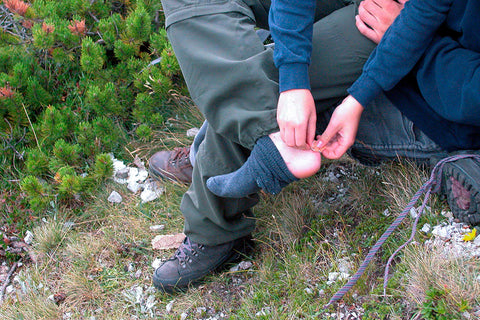
4. Blisters
Blisters can turn a breathtaking hike into a painful slog. Blisters are mostly caused by the friction of your skin rubbing against your shoes and socks. While blisters might seem like a minor nuisance, they can significantly impact your hiking experience and, if left untreated, can lead to infection.
To prevent blisters, start with the right footwear. Shoes or boots that fit well are paramount; they should be snug but not too tight, with enough room to wiggle your toes. And make sure to break in your hiking shoes or boots before embarking on long treks to ensure they're comfortable over distances. Moisture-wicking socks can also play an important role by keeping your feet dry and reducing friction.
Applying blister prevention tape or bandages to known hot spots on your feet before you start hiking can provide an additional layer of protection. If you feel a hot spot developing while on the trail, stop immediately to apply a protective covering before it turns into a blister.
If a blister does form, it's important to manage it properly. Clean the area gently and cover the blister with a sterile bandage to protect it from further irritation and infection. Avoid popping blisters, as this increases the risk of infection. If a blister breaks on its own, clean the area, apply an antibiotic ointment, and cover it with a bandage.
5. Sunburn
Uncomfortable sunburns can cause you to toss and turn in your tent. They can also increase your risk of skin cancer over the long term. You need to think about the sun, even if it’s cloudy, and especially if you’re at high altitudes where the sun is stronger.
Of course, applying and re-applying sunscreen is important, but your choice of clothing matters, too. You can prevent sunburns by wearing long sleeves, like a hooded sunshirt, for example, and pants as often as possible. Wide-brim hats also offer excellent sun protection.

What to do if you are injured on trail?
Despite careful preparation, injuries can occur on the trail. Having some basic first aid knowledge and gear before you head out on your adventures can help you be prepared. A Wilderness First Aid class, or equivalent, is a great starting point. Below are a few steps to take if you or a companion are injured while hiking:
- Assess the Situation: Determine the severity of the injury. Can the injured person move? Is there severe bleeding? Are they showing signs of shock or dehydration?
- Stay Calm and Don’t Rush: Panic can exacerbate the situation. Find a safe spot to assess the injury. Even if it appears to be minor, take a breather before you continue or head back: sometimes it can take a couple of minutes to realize the severity of an injury.
- Administer First Aid: Use your first aid kit to address any immediate needs, like cleaning wounds, applying bandages, or stabilizing sprains.
- Call for Help if Necessary: If the injury is serious and you cannot safely get the person off the trail on your own, it’s time to call for help. Use a cell phone if you have service, an emergency satellite communication device, or send a capable member of your party to get help. There is no shame in needing to call for help: you can put yourself and others in greater danger if you don’t. While waiting for help, keep the injured person hydrated and warm.
- Don’t Move Serious Injuries: Unless there’s an immediate danger, try not to move someone with a serious injury, especially if you suspect a head, neck, or back injury.
- Document: If you’ve called for emergency services, remember the location where the injury occurred with coordinates or landmarks, and take note of the condition of the injured person. This information can be extremely helpful for search and rescue. If you have medical or first aid training, you can take and provide vital signs.
- Follow-up: Once you’re off the trail, ensure that the injured person seeks medical attention or is in good care, even for injuries that might seem minor. Some issues, like concussions or internal bleeding, might not be immediately apparent.
Injuries are an unfortunate part of getting outside and hiking, but with good preventative measures, you can do your best to avoid them. Even so, if you spend enough time in the outdoors, injuries are a reality that you need to be prepared for with gear and knowledge. Take a look at some of these common scenarios and think about how you can be ready to avoid them in the first place, and safely deal with them if they do happen.
